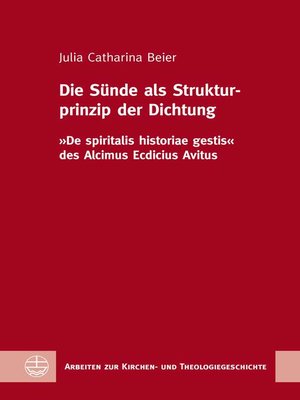Die Sünde als Strukturprinzip der Dichtung
ebook ∣ "De spiritalis historiae gestis" des Alcimus Ecdicius Avitus · Arbeiten zur Kirchen- und Theologiegeschichte (AKThG)
By Julia Catharina Beier

Sign up to save your library
With an OverDrive account, you can save your favorite libraries for at-a-glance information about availability. Find out more about OverDrive accounts.
Find this title in Libby, the library reading app by OverDrive.



Search for a digital library with this title
Title found at these libraries:
| Library Name | Distance |
|---|---|
| Loading... |
Die aus fünf Büchern bestehende Dichtung De spiritalis historiae gestis des Avitus von Vienne ist eines der bedeutendsten Bibelepen der Spätantike. Bislang existieren in der Forschung nur unzureichende Modelle über den inneren Zusammenhang zwischen diesen Büchern. Die Verbindung ist jedoch in dem Wechsel von "Sünden-Erzählungen" und "Ordnungs-Erzählungen" eindeutig gegeben. Paradoxerweise ist gerade die Auflösung des ordo durch die Sünde ein strukturelles Ordnungsprinzip dieses Werks. Dem wird hier mit einer mehrphasigen Methodik nachgegangen. Unter Berücksichtigung philologischer Beobachtungen werden Theologie-, Exegese-, Gattungs- und Motivgeschichte sowie Rezeptionsästhetik des Werkes untersucht. [Sin as the Structural Principle of the Poem "De spiritalis historiae gestis" by Alcimus Ecdicius Avitus]
Avitus of Vienne wrote one of the most important biblical epics of late antiquity. His opus De spiritalis historiae gestis consists of five books. So far, researchers have struggled to explain the connection between the individual books. This work, however, is able to show that the coherence of the opus is clearly indicated by the alternation of "sin stories" and "order stories". The recurring elimination of order by sin, thus, paradoxically poses the structural principle of the entire poem. The observation firmly rests on a careful analysis of the epic's history of theology, exegesis, genre, motif and reception aesthetics and is further supported by philological observations connected to the idea of "Godly order" and "sinful chaos".







